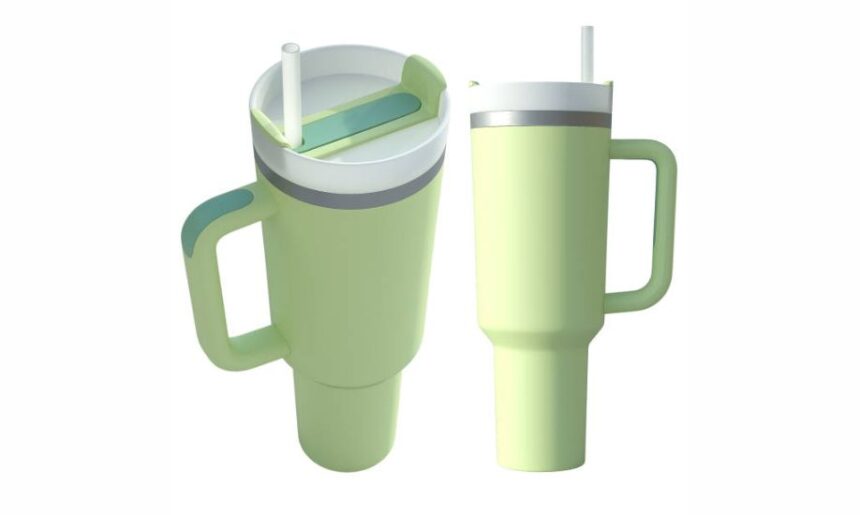The Starbucks Stanley Cup has taken the beverage and lifestyle industries by storm, blending fashion with functionality. This exclusive collaboration between Starbucks and Stanley, a brand known for its durable drinkware, has created a massive following among consumers. In this article, we will explore the phenomenon of the Starbucks Stanley Cup, delve into related topics like Starbucks careers, ongoing controversies, and the effects of global movements like the BDS boycott on the brand.
What is the Starbucks Stanley Cup?
The Starbucks Stanley Cup is a limited-edition, stylish, and functional tumbler released through a collaboration between Starbucks and Stanley. Known for its high durability and modern aesthetic, the cup has gained immense popularity, particularly among younger consumers. The unique designs and limited availability make it a collector’s item, often leading to long queues and quick sellouts.
The Popularity of the Starbucks Stanley Cup
Trendsetting in Beverage Accessories
The Starbucks Stanley Cup is more than just a drinkware item; it is a fashion statement. With its sleek design and eco-friendly features, the cup appeals to environmentally conscious consumers who prioritize sustainable products. Social media platforms like TikTok and Instagram have amplified its popularity, with influencers showcasing their customized Stanley Cups.
Limited Editions and Consumer Frenzy
Starbucks frequently releases the Stanley Cup in various colors and designs, creating a sense of exclusivity. This marketing strategy triggers a frenzy among fans who rush to purchase these limited-edition items, sometimes reselling them at higher prices in secondary markets.
Starbucks Careers: Opportunities Beyond the Cup
Working at Starbucks offers more than just serving coffee. The company prides itself on providing comprehensive career development opportunities, competitive wages, and inclusive work environments.
Employee Benefits and Growth
Starbucks careers include roles in store management, corporate offices, and product development. The company offers healthcare benefits, stock options, and tuition assistance, attracting a diverse workforce. Employees often get firsthand access to new product launches, including the coveted Starbucks Stanley Cup.
Inclusive Workplace Culture
Starbucks is known for fostering an inclusive workplace that encourages personal growth and professional advancement. This culture of diversity and inclusion makes Starbucks an attractive employer for individuals seeking meaningful careers.
Starbucks Controversy: Navigating Brand Challenges
Despite its global success, Starbucks has faced its share of controversies. From labor disputes to political stances, the brand often finds itself in the spotlight.
Labor and Unionization Efforts
In recent years, Starbucks employees have pushed for unionization, demanding better wages and working conditions. These efforts have sparked public debates and highlighted tensions between corporate policies and worker rights.
Ethical Sourcing and Environmental Concerns
Starbucks has also faced criticism regarding its environmental impact and sourcing practices. Although the company promotes sustainable initiatives, critics argue that more needs to be done to address waste management and ethical sourcing fully.
BDS Boycott Starbucks: Global Movements and Brand Impact
The Boycott, Divestment, and Sanctions (BDS) movement targets companies perceived as supporting controversial political causes, and Starbucks has not been immune.
Understanding the BDS Movement
The BDS movement aims to pressure corporations to withdraw support from certain geopolitical conflicts. Starbucks has faced boycott calls based on perceived affiliations and business practices, affecting its global image.
Impact on Brand Reputation
Though Starbucks has publicly distanced itself from political affiliations, the BDS boycott Starbucks campaign has influenced consumer behavior, leading to calls for ethical consumption and corporate accountability.
Are We Still Boycotting Starbucks?
The question, “Are we still boycotting Starbucks?” reflects the ongoing debate surrounding the brand’s involvement in socio-political issues.
Consumer Sentiment and Activism
Consumer opinions remain divided, with some continuing to boycott Starbucks due to perceived ethical concerns, while others remain loyal to the brand for its quality products and corporate responsibility initiatives.
Starbucks’ Response to Boycotts
Starbucks has implemented various corporate social responsibility (CSR) programs to mitigate criticism and demonstrate its commitment to ethical practices. These initiatives aim to rebuild trust and maintain customer loyalty.
The Future of the Starbucks Stanley Cup and Brand Evolution
The Starbucks Stanley Cup exemplifies how a product can influence consumer trends and drive brand engagement. Starbucks continues to innovate, balancing product popularity with social responsibility.
Sustainable Product Development
Starbucks is investing in sustainable product designs to appeal to eco-conscious customers. Future iterations of the Starbucks Stanley Cup may feature even more environmentally friendly materials and production methods.
Adapting to Market Demands
By addressing controversies and aligning with global sustainability trends, Starbucks aims to maintain its market dominance while fostering positive consumer relationships.
Conclusion
The Starbucks Stanley Cup is a cultural phenomenon that encapsulates style, sustainability, and exclusivity. While the product drives immense consumer engagement, Starbucks also navigates complex challenges, including labor disputes and global boycotts. Understanding these dynamics offers insight into how Starbucks manages its brand image and product success.
As Starbucks continues to evolve, its iconic Stanley Cup remains a symbol of consumer trends and brand influence, demonstrating the power of strategic product marketing and corporate responsibility.






